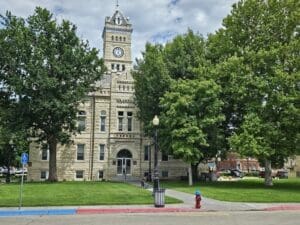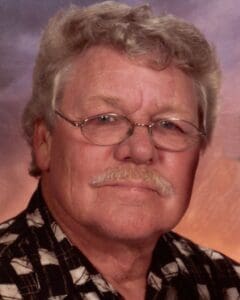Wichita, KS— Dozens of education bills making their way through the Kansas Legislature this session could have a profound effect on public schools.
Conservatives want to make it easier for families to send their children to private schools — including diverting tax dollars — and they’re once again pushing for more parental control over what’s taught in public school classrooms.
Other proposals include a push to fully fund special education, a bill that would allow pay for school board members, and one that would dramatically increase the time students spend in school.
Here is a look at some of the education-related measures debated in the Statehouse:
House Bill 2218, an education savings account measure, would give qualifying families about $5,000 of tax money to use toward the cost of private school tuition or homeschooling.
Conservatives say ESAs, which have passed in several other states, would give more families an alternative to public schools, which they say are failing some kids.
Opponents — including public school superintendents, teachers’ unions and the Kansas State Board of Education — say that’s an attempt to defund and undermine public schools. They say there’s no evidence that voucher programs work or that students do better academically in private schools.
House Bill 2048 would expand a tax credit that allows taxpayers to write off up to $500,000 worth of scholarships they provide for private schools. A similar bill, Senate Bill 128, would give taxpayers a refundable income tax credit when their K-12-aged children are not enrolled in public schools.
Opponents say the programs could be used to divert personal or business tax liabilities from the state’s general fund into private school scholarships.
“Holy tax scams, that is a masterful shell game,” said Rep. Mari-Lynn Poskin, an Overland Park Democrat, during a recent committee hearing. “Any religious organization of dark money special interest group can basically divert their group’s entire Kansas tax liability … for distribution to private schools that are not subject to the same oversight as our Kansas public schools.”
Opponents also worry about tax dollars going to religious education. Poskin pointed to a case in Ohio where a white supremacist homeschool shared Nazi-related lesson plans.
“Should a homeschool become a dissonant homeschool in Kansas, the state would be paying for neo-Nazi curriculum and materials,” Poskin said.
Conservative lawmakers continue to push for parental rights legislation. Last year, Kansas Gov. Laura Kelly vetoed a proposed Parents’ Bill of Rights that would have required school districts to develop and adopt policies that guaranteed parents’ rights.
This session, House Bill 2236 would establish parents’ right to direct their children’s education and “to object to harmful or inappropriate educational materials and activities.”
A House committee also approved a last-minute amendment to an open-enrollment bill that would require districts to have an online “parent portal” that lists all curricula, textbooks and other similar materials.
Opponents say the measures are vague and unnecessary because parents can already opt their children out of any lesson.
The governor wants to increase funding to special education by about $72 million a year to bring the state’s contribution to the fully funded level required by Kansas law.
So far, the House has passed a bill that creates a task force to study the issue. Some lawmakers want a resolution asking the federal government to pay more. But there has been no real action on funding.
Another bill would allow — but not require — school districts to pay board members out of their district budgets. The Kansas Association of School Boards is opposing the measure, saying no board member requested it and that many say volunteer service is important to their mission.
Other education bills include one that would allow school board candidates to list a political party affiliation on the ballot, one that would require districts to establish an independent review policy for complaints about bullying, and one that would drastically increase the time students spend in school.
Suzanne Perez reports on education for KMUW in Wichita and the Kansas News Service. You can follow her on Twitter @SuzPerezICT.
The Kansas News Service is a collaboration of KMUW, KCUR, Kansas Public Radio and High Plains Public Radio focused on health, the social determinants of health and their connection to public policy.
Kansas News Service stories and photos may be republished by news media at no cost with proper attribution and a link to ksnewsservice.org.













